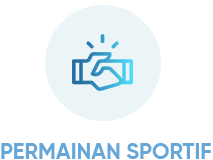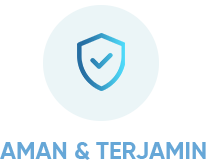



Kami bangga menyediakan pengalaman pemain yang dibangun dari konsep permainan yang adil.

Kami bangga menjadi salah satu situs poker klub elit yang telah berlisensi & diregulasi di Asia.

Kami memiliki salah satu platform pembayaran online 24 jam yang paling aman dan terbaru.

Customer Support eksekutif kami selalu tersedia untuk membantu segala pertanyaan Anda.